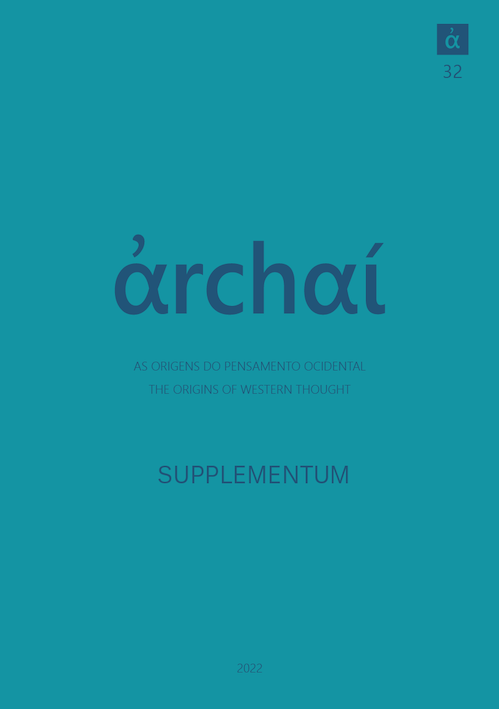Plato’s Lysis and the Erotics of Philia
DOI:
https://doi.org/10.14195/1984-249X_32_42Keywords:
Plato, Lysis, friendship, philia, eros, desire, AristotleAbstract
This paper argues that the account of friendship (philia) present in Plato's dialogue the Lysis is rife with the disruptive and maddening force of eros.By its end it is no longer clear whether the familiar sorts of personal relationships that we typically count as friendships, and which Aristotle discusses with great sensitivity and appreciation in theNicomachean Ethics,can be meaningfully sustained. To support this thesis, the paper analyzes each of the seven, relatively self-contained arguments Socrates offers. In addition, it shows how the dramatic context in which these arguments are embedded foreshadows the dialogue's principal objective: to blur the distinction between philiaand eros by allowing the latter to infect the former
Downloads
References
BAYWATER, J. (ed.) (1894). Aristotlelis. Ethica Nicomachea Oxford, The Clarendon Press.
BURNET, J. (1903). Platonis. Opera Oxford, Oxford University Press.
DOVER, K. (1980). Greek Homosexuality New York, Random House.
GADAMER, H.-G. (1980). Dialogue and Dialectic SMITH, P. C. (trans.). New Haven, Yale University Press.
MILLER, M. (1991). Plato’s Parmenides. State College, Pennsylvania State University Press.
MILLER. M. (2004). The Philosopher in Plato’s Statesman Las Vegas, Parmenides Publishing.
NAILS, D. (2002). The People of Plato Indianapolis, Hackett.
NELSON, S. (2009). Hesiod's Theogony. Newburyport, Focus.
PENNER, T.; ROWE, C. (2005). Plato's Lysis Cambridge, Cambridge University Press.
ROOCHNIK, D. (2001). The Deathbed Dream of Reason: Socrates’ Dream in the Phaedo Arethusa 34, p. 239-258.
Downloads
Published
How to Cite
Issue
Section
License
Copyright (c) 2023 David Roochnik

This work is licensed under a Creative Commons Attribution 4.0 International License.
Given the public access policy of the journal, the use of the published texts is free, with the obligation of recognizing the original authorship and the first publication in this journal. The authors of the published contributions are entirely and exclusively responsible for their contents.
1. The authors authorize the publication of the article in this journal.
2. The authors guarantee that the contribution is original, and take full responsibility for its content in case of impugnation by third parties.
3. The authors guarantee that the contribution is not under evaluation in another journal.
4. The authors keep the copyright and convey to the journal the right of first publication, the work being licensed under a Creative Commons Attribution License-BY.
5. The authors are allowed and stimulated to publicize and distribute their work on-line after the publication in the journal.
6. The authors of the approved works authorize the journal to distribute their content, after publication, for reproduction in content indexes, virtual libraries and similars.
7. The editors reserve the right to make adjustments to the text and to adequate the article to the editorial rules of the journal.



